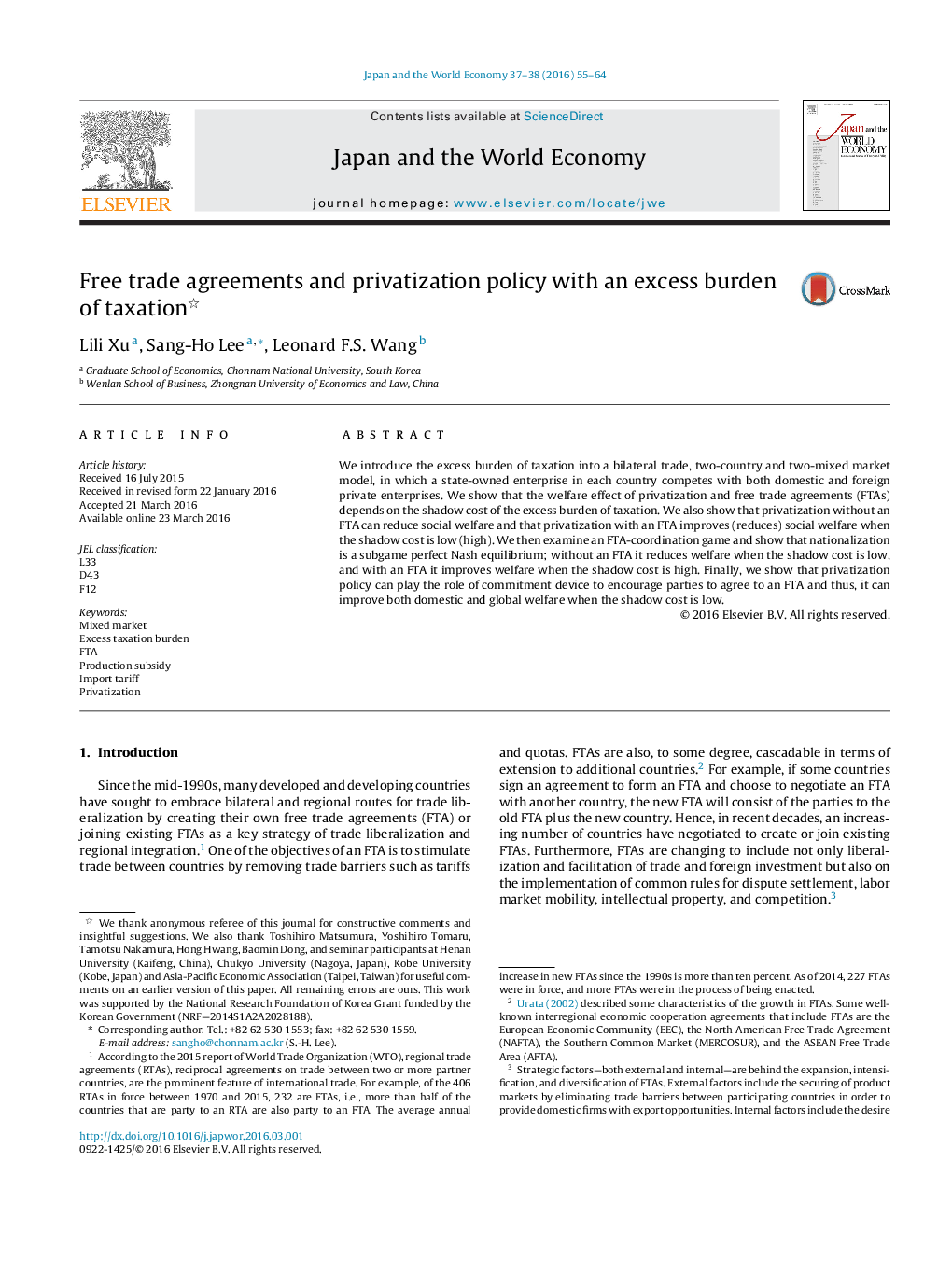| Article ID | Journal | Published Year | Pages | File Type |
|---|---|---|---|---|
| 5086127 | Japan and the World Economy | 2016 | 10 Pages |
Abstract
We introduce the excess burden of taxation into a bilateral trade, two-country and two-mixed market model, in which a state-owned enterprise in each country competes with both domestic and foreign private enterprises. We show that the welfare effect of privatization and free trade agreements (FTAs) depends on the shadow cost of the excess burden of taxation. We also show that privatization without an FTA can reduce social welfare and that privatization with an FTA improves (reduces) social welfare when the shadow cost is low (high). We then examine an FTA-coordination game and show that nationalization is a subgame perfect Nash equilibrium; without an FTA it reduces welfare when the shadow cost is low, and with an FTA it improves welfare when the shadow cost is high. Finally, we show that privatization policy can play the role of commitment device to encourage parties to agree to an FTA and thus, it can improve both domestic and global welfare when the shadow cost is low.
Related Topics
Social Sciences and Humanities
Economics, Econometrics and Finance
Economics and Econometrics
Authors
Lili Xu, Sang-Ho Lee, Leonard F.S. Wang,
